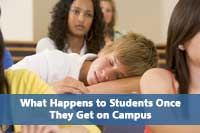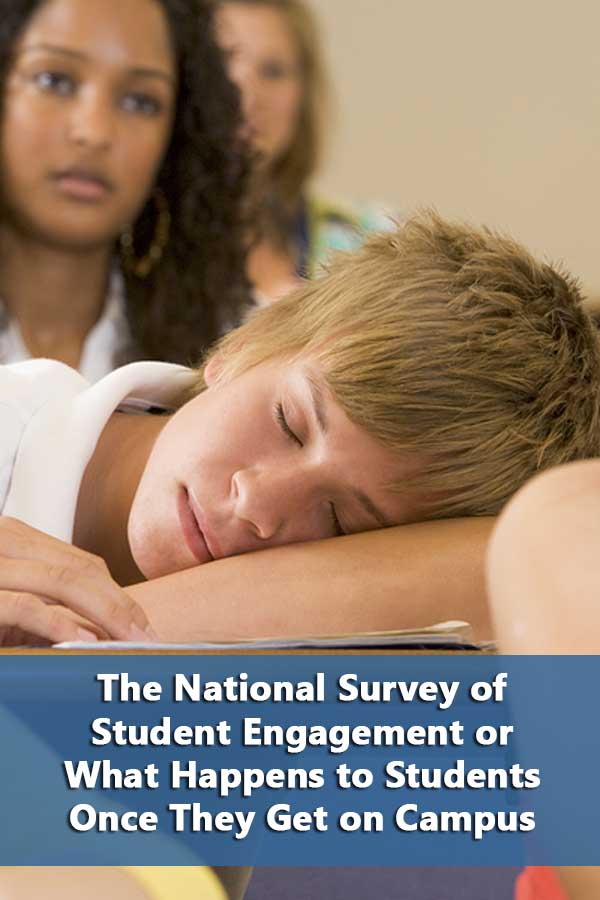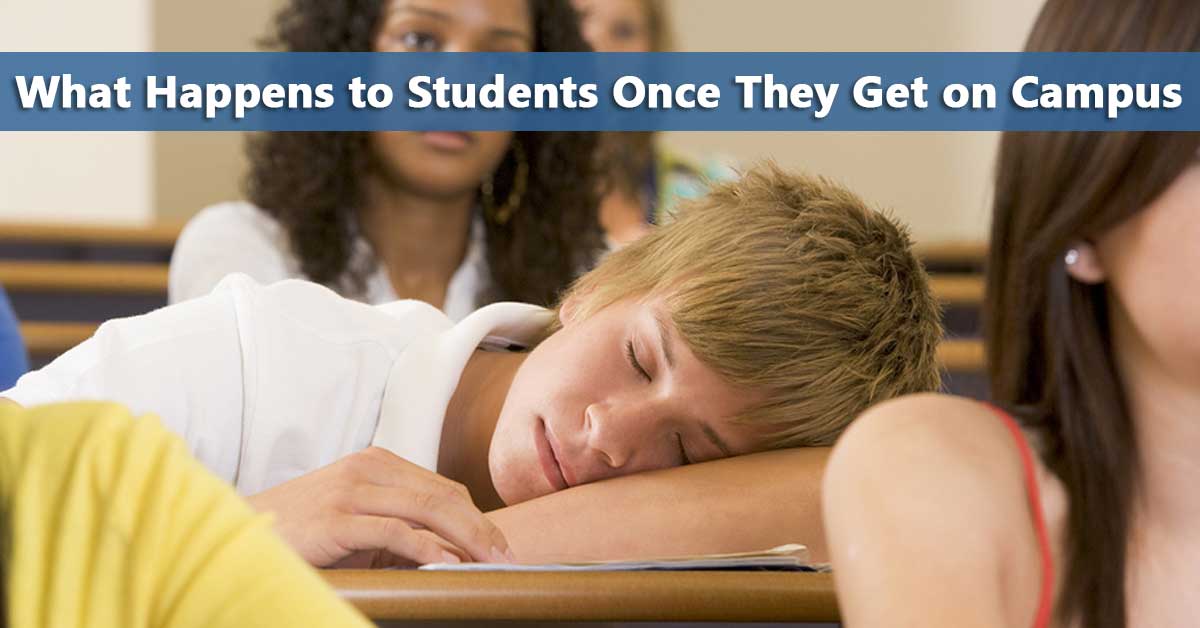 It’s hard for anyone looking for the best college not to have heard about the US News College Rankings. It’s very easy for students to go through the college application process without ever hearing about the National Survey of Student Engagement (NSSE) which is a shame but not surprising. After all, it doesn’t have “rankings” in its title and isn’t going to crown the best college or university in the nation.
It’s hard for anyone looking for the best college not to have heard about the US News College Rankings. It’s very easy for students to go through the college application process without ever hearing about the National Survey of Student Engagement (NSSE) which is a shame but not surprising. After all, it doesn’t have “rankings” in its title and isn’t going to crown the best college or university in the nation.
Join other parents in the Coffee Cup College Planning Facebook Group
But it will tell you how many students are experiencing established best practices for undergraduate learning. Unlike some popular rankings, the NSSE looks at the experience of undergraduates once they get to campus rather than conveniently measured institutional characteristics such as money spent or student qualifications.
Instead, NSSE surveys more than 315,000 freshman and seniors at over 500 colleges and universities. The aggregate findings are published. Results from individual schools are not unless the school chooses to do so itself. The goal of NSSE is for institutions to use the information for self-improvement.
This isn’t great from the perspective of the student consumer but understandable. It’s hard for anyone looking for the best college not to have heard about the US News College Rankings. It’s very easy for students to go through the college application process without ever hearing about the National Survey of Student Engagement (NSSE) which is a shame but not surprising. After all, it doesn’t have “rankings” in its title and isn’t going to crown the best college or university in the nation.
The NSSE asks what students actually do
But it will tell you how many students are experiencing established best practices for undergraduate learning. Unlike some popular rankings, the NSSE looks at the experience of undergraduates once they get to campus rather than conveniently measured institutional characteristics such as money spent or student qualifications.
Instead, NSSE surveys more than 300,000 freshman and seniors at over 500 colleges and universities. The aggregate findings are published. Results from individual schools are not unless the school chooses to do so itself. The goal of NSSE is for institutions to use the information for self-improvement.
This isn’t great from the perspective of the student consumer but understandable. How many people would voluntarily be evaluated or tested for just about anything if they knew the results were going to be public, good or bad? However, a good number of schools do post some, if not all, of their results. Just search on the college and NSSE.
Students can download or order a NSSE Pocket Guide to Choosing a College with questions to ask based on the NSSE survey and findings. Students and families will also find the annual report worth reading.
Differences between majors and college types
Some of the findings from the 2018 Annual Results report of the National Survey of Student Engagement (NSSE) that might be useful in searching for a college:
- Seniors majoring in Education and Communication, Media, and Public Relations, Engineering had the highest participation rates in internship, co-op, field experience, student teaching, or clinical placement. Arts & Humanities and Business majors had the lowest.
- Among seniors, 65% of those majoring in Arts & Humanities have never used numerical information to examine a real-world problem or issue. Only 13% of senior Business majors could say the same. Business and Engineering majors were least likely to talk about career plans with faculty.
- Overall, 44% of seniors at Liberal Arts Colleges reported working with faculty on a research project compared to 26% of seniors at Doctoral Universities with high research.
- Seniors in Education and Health Professions reported that their college experience was most likely to contribute to job or work related knowledge. Arts & Humanities, Biology, Agriculture, & Natural Resources, Physical Science, Math, and Computer Science and Social Sciences majors had the lowest percentage.
- Seniors at Liberal Arts Colleges and Doctoral Universities with highest research were most likely to participate in an internship, co-op, field experience, student teaching, or clinical placement.
You can view tables with response percentages for all questions broken down by institutional type, gender, and major. They show that students experience best practices at all campus types and the vast majority showed positive trends from freshman to seniors.
Unfortunately, they also show that 23% of seniors have never written a report or paper between 6 to 10 pages. A total of 17% of seniors never discussed career plans with a faculty member or adviser. However, almost half of all seniors have completed or are in the process of completing an internship or similar hands-on experience.
The focus isn’t on results after college
The NSSE results don’t say anything about what happens after graduation. The assumption is that the best practices they are measuring leads to a successful education which isn’t the same thing as saying 95% of graduates are employed and making lots of money.
The NSSE isn’t going to tell which college you should go to. It will tell you what characteristics to look for in an undergraduate education.
CONNECT WITH OTHER PARENTS PLANNING FOR COLLEGE
JOIN THE COFFEE CUP COLLEGE PLANNING FACEBOOK GROUP



5 thoughts on “What Happens to Students Once They Get on Campus-The National Survey of Student Engagement”